The best gaming routers 2024: top routers for gamers
The best gaming routers are the secret weapons to gaming
The best gaming router will ensure excellent uninterrupted connectivity during gaming sessions. If you play a lot of online or multiplayer games, having a fast and robust Wi-Fi connection is just as vital as a powerful gaming PC. And since your connection can only be just as good as your router, you can’t scrimp on it.
After all, if you’ve invested so much in the best gaming PC, you don’t want to rely on a router that can barely get the job done. In fact, even if you don’t play a lot of titles that rely heavily on Wi-Fi connectivity, you’ll still benefit from the best router designed specifically for gamers. There are features on board these devices that target the needs of gamers, including prioritized wired connectivity. And furthermore, if you’re downloading large files such as one of the best PC games with all its DLCs, you’ll have an easier time getting a strong connection for what you need.
If you or someone in your home is a gamer, it’s time to return that mid-tier router you got from your ISP and get a quality gaming one that can keep up. We’ve used and tested a lot of routers so we know which ones are capable of providing your PC or next-gen console with the performance it requires.
We’ve gathered the best gaming routers – including some of the best Asus routers – for you, digging into all their respective features, including support for the latest wireless standard - blazing-fast Wi-Fi 7. If you have a large area of coverage, however, you should take a look at our best mesh Wi-Fi system picks instead.
The best gaming routers 2024
Why you can trust TechRadar
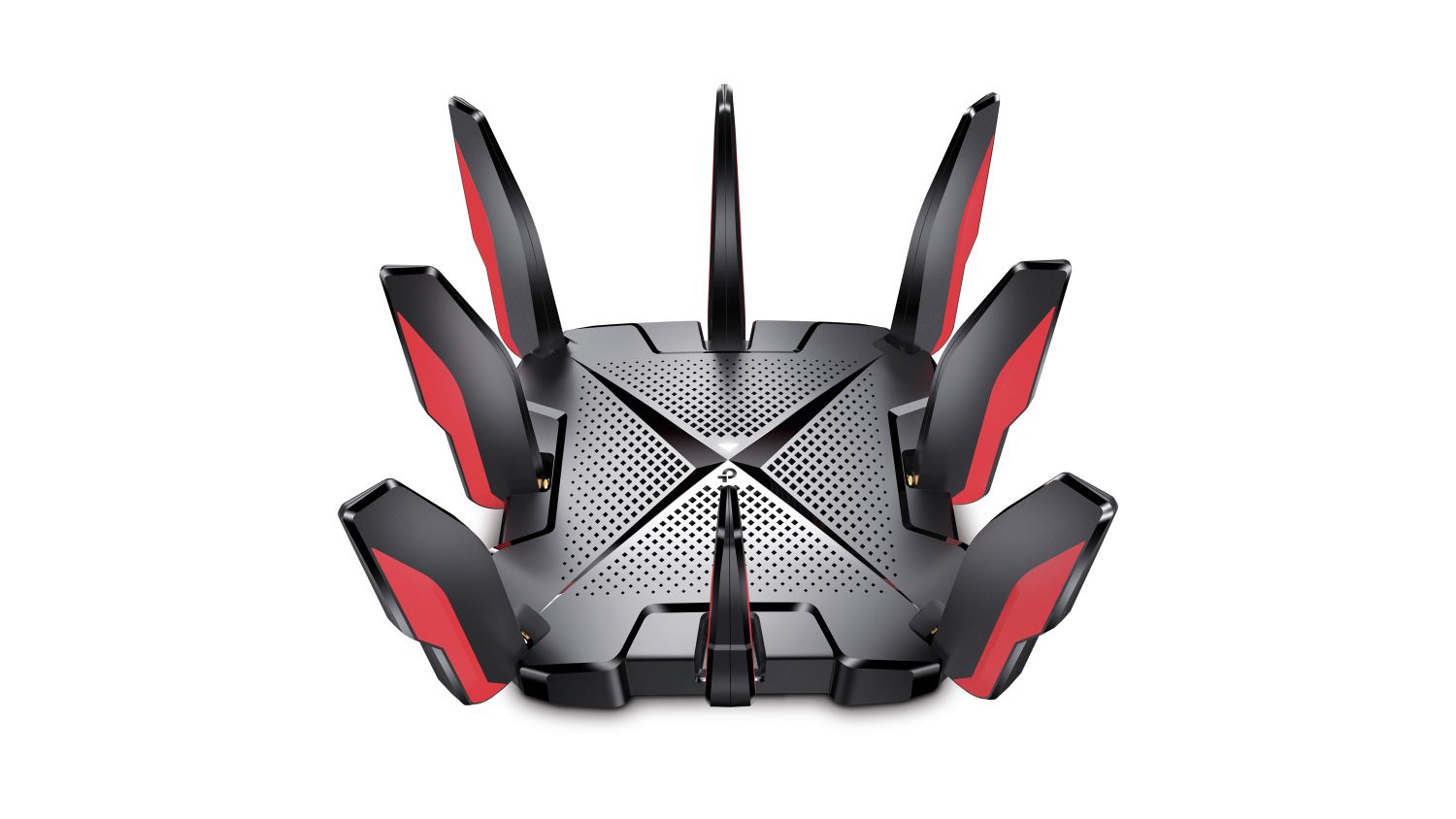
Specifications
Reasons to buy
Reasons to avoid
Gamers looking to get an edge on the competition would do well to get a router that can keep up with their internet needs. That means a router with high enough speeds and throughput, a stable connection and features like QoS to keep that online arena shooter prioritized in the network’s bandwidth.
In our experience, the TP-Link Archer GX90 does all that. It’s a Wi-Fi 6 router that offers three bands, including a dedicated 4.8Gbps “gaming band,” and all three were speedy and rock solid in our testing. It even has other useful features such as OneMesh support that lets you connect it to other routers with the same feature for a mesh-type router system.
When the GX90 launched, Wi-Fi 6 was still a new standard and this router was pretty expensive, but the good news is that these days, it’s surprisingly affordable for the performance you’re getting. One downside to note is that we did experience some bumps with the initial setup of this device, however.
Read the full TP-Link Archer GX90 review
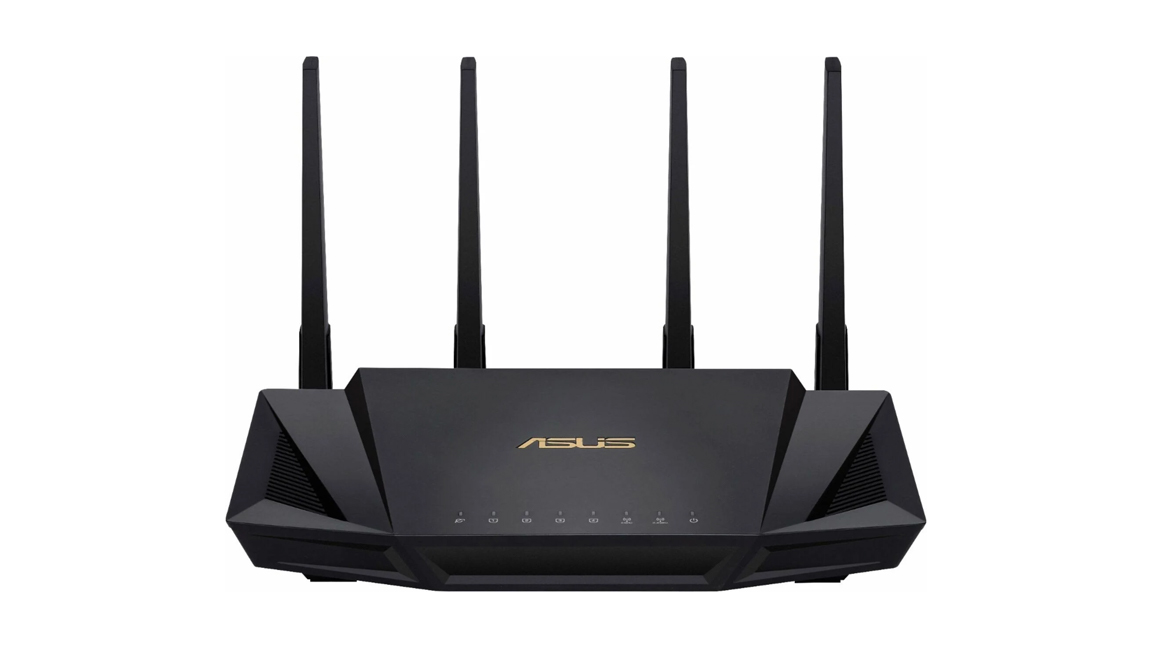
Specifications
Reasons to buy
Reasons to avoid
The Asus RT-AX58U is a solid Wi-Fi 6 router and while it only offers two bands, 2.4GHz and 5GHz, that’s a small sacrifice to pay for its reasonable price.
In fact, in our tests, we found little else to fault. It’s easy to set up whether through a web browser interface or a mobile app. It comes with solid parental controls. And, like any good Wi-Fi 6 capable router, it can handle a lot of devices at once.
It may be overkill if you just want to watch Netflix and read some emails. And, it might not be capable of handling a large home – consider one of our mesh router recommendations for that. But, if you want solid, speedy performance in a small to medium sized space, the Asus RT-AX58U is a smart choice.
Read our full Asus RT-AX58U review
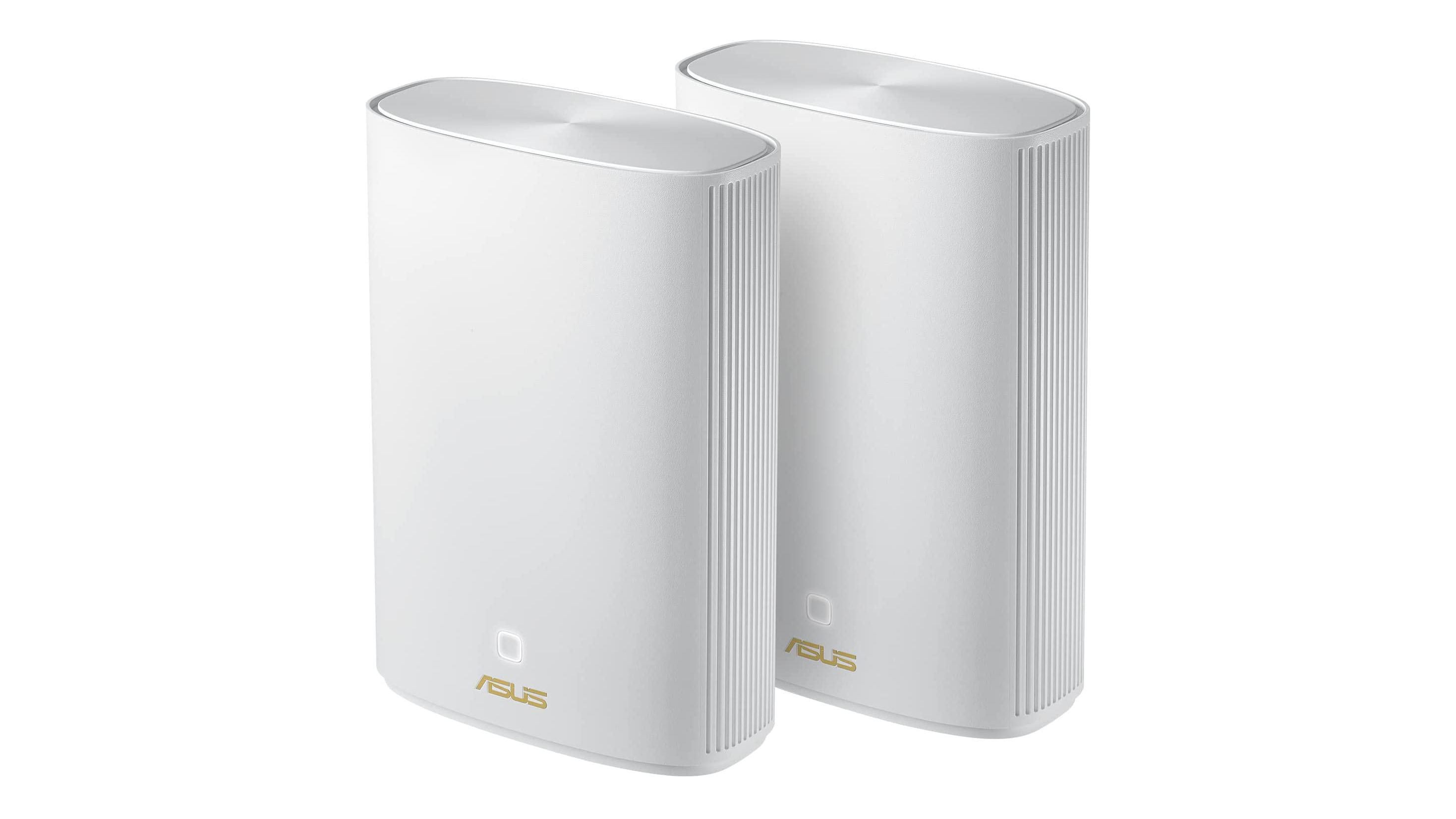
Specifications
Reasons to buy
Reasons to avoid
The Asus ZenWiFi AX Hybrid XP4 may be expensive. And, it may take a little extra work to set up. But, if you have a home or office with the kind of walls that just won’t let an internet signal through, then this mesh Wi-Fi system might be your best solution to those connectivity issues.
Why is that? The XP4 is not only a mesh system but its units are both powerline adapters as well. Instead of extending a Wi-Fi signal from one router to the other, that signal is passed through your home or office’s electrical wiring, circumventing the kind of barriers that might keep a signal from passing through.
While we found the initial setup to be overly complicated for what needs to be done, the router is easy to use afterwards. Speeds are good but, more importantly, its range and ability to reach areas usually inaccessible to a Wi-Fi signal are quite impressive.
Read our full Asus ZenWiFi AX Hybrid XP4 review
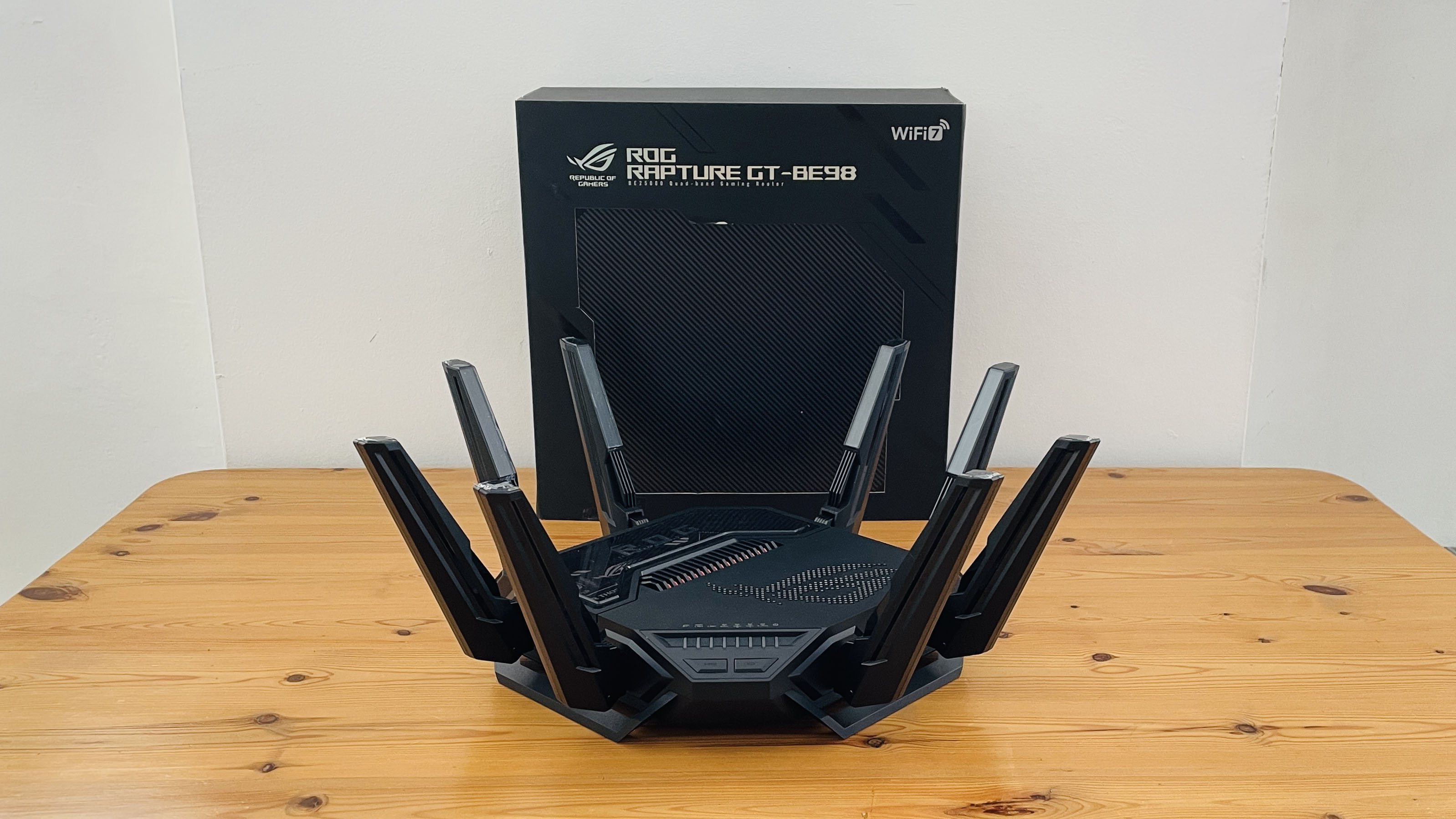
Specifications
Reasons to buy
Reasons to avoid
If you want the fastest possible performance, based on cutting-edge Wi-Fi 7, then look no further than this Asus gaming router – but be warned, you’ll pay a heavy price for it.
Before we come to that price tag, let’s explore the specs here which are nothing short of staggering for wireless performance. The Asus ROG Rapture GT-BE98 boasts quad-band Wi-Fi 7 with a top speed of 24.4Gbps, and if you want great wired performance, that’s on hand too – with 10Gb and 2.5Gb Ethernet ports at your disposal. There are two 10Gb Ethernet connectors, in fact, one of which is a dedicated ‘gaming port’ into which you can plug your gaming PC to ensure it gets priority over all other ports.
Not only is the ROG Rapture GT-BE98 jaw-droppingly fast, but it’s also well-featured – incorporating the likes of parental controls even – and this is a standout router for features and performance. Of course, then we come to that price tag, which at launch is around the same as the cost of a cheap gaming PC – it goes beyond eye-watering for a router.
In short, the GT-BE98 won’t make sense to any gamer but those with deep wallets, and also the matching hardware with Wi-Fi 7 support, plus a very speedy broadband connection to feed to the GT-BE98 to make the most of it. If you want the absolute pinnacle of gaming router performance, though, this is it – but in the value stakes, a Wi-Fi 6 or 6E model makes a lot more sense currently.
Read our full Asus ROG Rapture GT-BE98 review
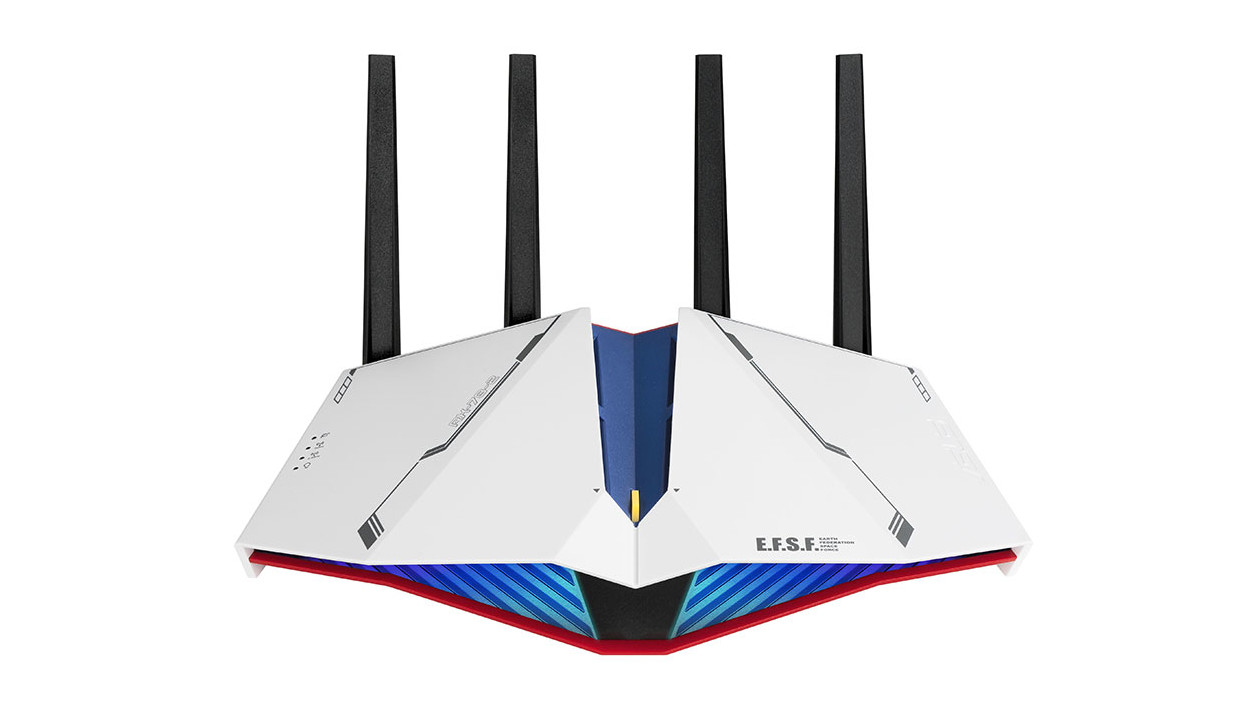
Specifications
Reasons to buy
Reasons to avoid
For not a lot of money, the Asus RT-AX82U is the kind of jack-of-all-trades router you might want to consider for a busy and varied household. It’s a decently speedy Wi-Fi 6 router that’s more than capable of handling quite a few devices.
When we tested this router, not only was setup a breeze, but we found in the web interface and mobile app the ability to either just set up and go, or to fine-tune our internet experience the way you would expect from an expensive gaming router. That included some gaming-related features, and there’s even a ‘mobile gaming’ feature meant for iOS and Android gamers.
While it’s not expensive, it’s not cheap either. This is solidly a mid-tier router. So, if you’re very limited on what you can spend, there are cheaper options out there - but they won’t be as fully featured as this Asus router.
To save money on Asus products, check out our Asus promo codes.
Read our full Asus RT-AX82U review
Should you buy a gaming router?
Why invest in a gaming router when you have a perfectly good one at home? You don’t have to be a hardcore gamer to need one. Whether online and co-op games are your thing or you download a lot of games on Steam, gaming can monopolize a chunk of your bandwidth, slowing your network down considerably.
A router made specifically for gaming, however, will not only deliver a stable, uninterrupted connection – most vital during the most intense moments of your game – but also allow you to prioritize traffic to your PC and consoles. It’ll vastly improve your gaming experience (and your download speed), minimizing lags and offering smoother graphics. It’ll also feature technologies like MU-MIMO and Quality of Service (or QoS) to take your network to the next level when playing with or against players from around the world.
Multi-device households will benefit as well, since gaming routers are better equipped to handle several devices and users using the network simultaneously.
How we test gaming routers
Gaming routers are just as important as gaming PCs and peripherals, especially for online gaming, so of course we take our job seriously when testing them. Before recommending one in this buying guide, we make sure that each one not only performs as promised, but is also a cut above the rest. After all, although there are a lot of options out there, only a few stand out.
We start with the design. We test its build, physical features, and look – although a whole lot of them are going to have that gamer aesthetic. We make sure that it has enough ports for that all-important wired connection, is effortless to set up, has support for such technologies as QoS, and has features like parental controls (in case you have young ones at home).
Naturally, we test its performance as well, seeing how it measures up against our file download test as well as the Ookla speed test – especially in comparison to its rivals. And, because you need to know how exactly it performs in real world scenarios, we take it for a spin by playing a few of the most demanding and popular online titles out there. It’s a tough job, but somebody’s gotta do it.
When all is said and gamed, we take all the information we’ve collected and compare it to the unit’s price tag. At the end of the day, what matters is that the gaming router delivers robust performance, an excellent feature set, and a solid build that is worthy of its price – even if that means paying a little more.
Get daily insight, inspiration and deals in your inbox
Sign up for breaking news, reviews, opinion, top tech deals, and more.

Named by the CTA as a CES 2023 Media Trailblazer, Allisa is a Computing Staff Writer who covers breaking news and rumors in the computing industry, as well as reviews, hands-on previews, featured articles, and the latest deals and trends. In her spare time you can find her chatting it up on her two podcasts, Megaten Marathon and Combo Chain, as well as playing any JRPGs she can get her hands on.
- Matt HansonManaging Editor, Core Tech
- Michelle Rae UyContributor